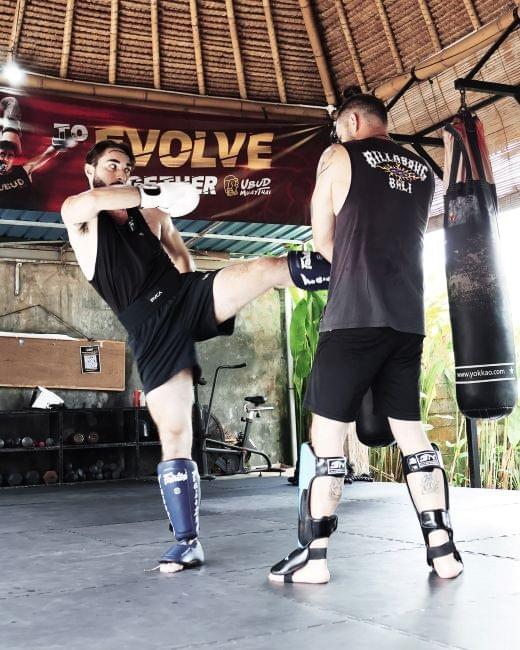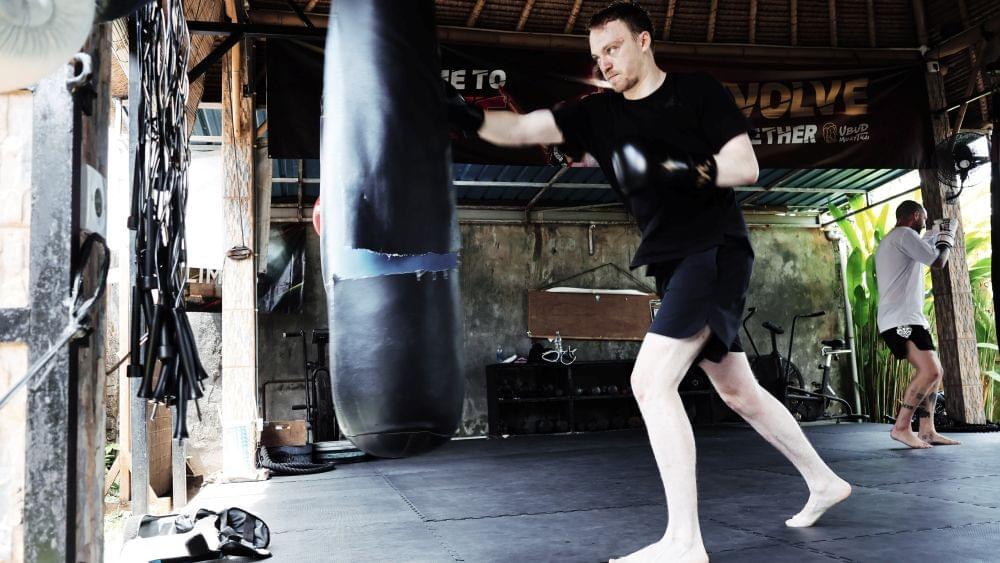Even the most experienced fighters feel fear. It might appear as nervous energy before a fight, doubt during training, or hesitation before stepping into the ring. But fear doesn’t mean weakness; it’s a sign that your body and mind are preparing for a challenge. The difference between an average fighter and a great one lies in how they respond to that fear.
In this article, you’ll learn practical ways to turn fear into fuel, from mindset shifts and breathing techniques to daily habits that build lasting confidence inside and outside the ring.
Why Fear Before Fighting Is Natural and Common
Feeling fear before a fight or even a hard sparring session is completely normal. Your body is built to protect you, and fear is simply its way of preparing for what’s ahead. The adrenaline, faster heartbeat, and sharper awareness you feel before stepping into the ring are all survival responses, your body’s natural way of getting ready for action.
Even professional fighters experience pre-fight nerves. They just learn to channel that energy instead of fighting against it. Once you understand that fear is part of the process, it becomes something you can work with, not something to avoid. Fear reminds you that you care, that you’re stepping into something meaningful, and that’s a powerful motivator.
Mindset Shifts to Manage Anxiety in Training and Fights
Your mindset determines how you respond to fear. The way you think about anxiety can turn it into an advantage instead of a weakness. These simple but powerful mindset shifts can help you stay calm, focused, and confident in both training and competition.
1. Redefine Fear as Readiness

Most fighters mistake fear for something negative, but in truth, fear is your body preparing for action. When your heart races or your palms sweat before a fight, it’s not panic, it’s your nervous system activating to keep you sharp and alert.
Try reframing those sensations as signs that your body is ready to perform. This shift changes fear from an obstacle into an ally. Instead of resisting it, use that energy to heighten your focus and reaction time.
2. Focus on What You Can Control
Anxiety often comes from worrying about things outside your control, your opponent’s experience, the crowd, or even the result. The key is to redirect your attention to what you can control: your preparation, your breathing, and your technique.
When you center your thoughts on your actions instead of the outcome, your mind stays present and calm. Over time, this habit creates trust in your training and builds quiet, unshakable confidence.
3. See Each Challenge as Practice
Every tough sparring session, every hard round on the bag, and every moment of discomfort is a chance to practice courage. Instead of avoiding what scares you, use it to train your mental toughness.
When you face challenges regularly, even small ones, you prove to yourself that fear can’t stop you. Over time, these experiences build resilience and confidence that carry into every part of your life.
4. Accept Imperfection as Part of Growth
Many fighters put pressure on themselves to be perfect, but perfection is the enemy of progress. Accept that mistakes, nerves, and setbacks are part of your development as a martial artist.
When you stop expecting yourself to be fearless or flawless, you become free to focus on improvement. Confidence doesn’t come from being perfect; it comes from knowing you can recover, adjust, and keep going.
Gradual Exposure Methods to Reduce Fear

Confidence comes from familiarity. The more often you face uncomfortable situations in training, the less power fear has over you. This process is called gradual exposure, a step-by-step way to build comfort through experience.
Start small. If sparring makes you anxious, begin with light drills or partner padwork where you can move at your own pace. Then, slowly increase intensity as you grow more comfortable. Over time, your brain starts associating those once-intimidating situations with control and confidence instead of panic.
You can also visualize success before it happens. Picture yourself stepping into the ring, staying calm, and executing your techniques smoothly. The mind doesn’t fully distinguish between visualization and real experience, so every mental rehearsal adds another layer of confidence.
Confidence-Building Habits for Long-Term Growth

Confidence isn’t built overnight; it’s the result of consistent, intentional habits. These daily practices can help you strengthen your mindset both inside and outside the gym:
- Show Up Consistently: Every time you show up to train, even on hard days, you prove to yourself that you’re capable. Consistency builds trust in your own discipline.
- Reflect After Each Session: Instead of only focusing on what went wrong, identify what went well. Celebrate small improvements, better timing, cleaner form, or better composure. Progress fuels confidence.
- Train Outside Your Comfort Zone: Growth happens where you’re slightly uncomfortable. Try new techniques, spar with different partners, or take on a new challenge. Each new experience builds resilience.
- Stay Surrounded by Positivity: Confidence thrives in a supportive environment. Train with people who push you, encourage you, and remind you of your progress.
Fear will always exist, but it doesn’t have to control you. When you learn to understand it, manage it, and use it to sharpen your focus, fear becomes one of your greatest assets as a fighter.
At Ubud Muay Thai, we help students turn nerves into strength through mindful training, smart coaching, and supportive community. Join our Muay Thai classes in Ubud, Bali, and discover how confidence is built.

